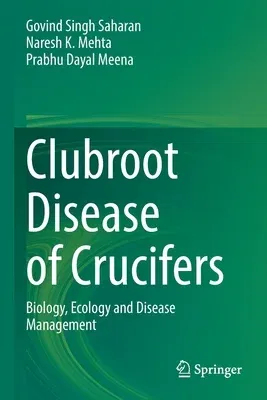The book is presenting a comprehensive information on fundamental, and
applied knowledge of Plasmodiophora brassicae Woronin. infecting
cruciferous crops, and weeds. Clubroot of crucifers has spread over more
than 88 countries of the world with average annual loss of cruciferous
crops from 10-15 per cent at global level. It is considered as a disease
of cultivation since once introduced in a field, its inoculum piles up
year by year in the form of resilient resting spores of P. brassicae
which spreads in the field through field operations. This disease is
very unique since the pathogen can survive in the soil in the
rhizosphere of non-host plants in addition to its main host cruciferous
species, cultivated or wild. This book complies inclusive information
about the disease, its geographical distribution, symptoms, host range,
yield losses, and disease assessment scales. The book also explores
host-parasite interactions in the form of seed infection, disease cycle,
process of infection, pathogenesis, epidemiology and forecasting.
Chapters discuss the genetic and molecular mechanisms of host-parasite
relationships, management practices including cultural, chemical,
biological control practices, and other integrated approaches. The book
is immensely useful to researchers, teachers, extension specialists,
farmers, and all others who are interested to grow healthy and
profitable cruciferous crops all over the world. Also the book serves as
additional reading material for undergraduate and graduate students of
agriculture and especially plant pathology. National and international
agricultural scientists, policy makers will also find this to be a
useful read.

